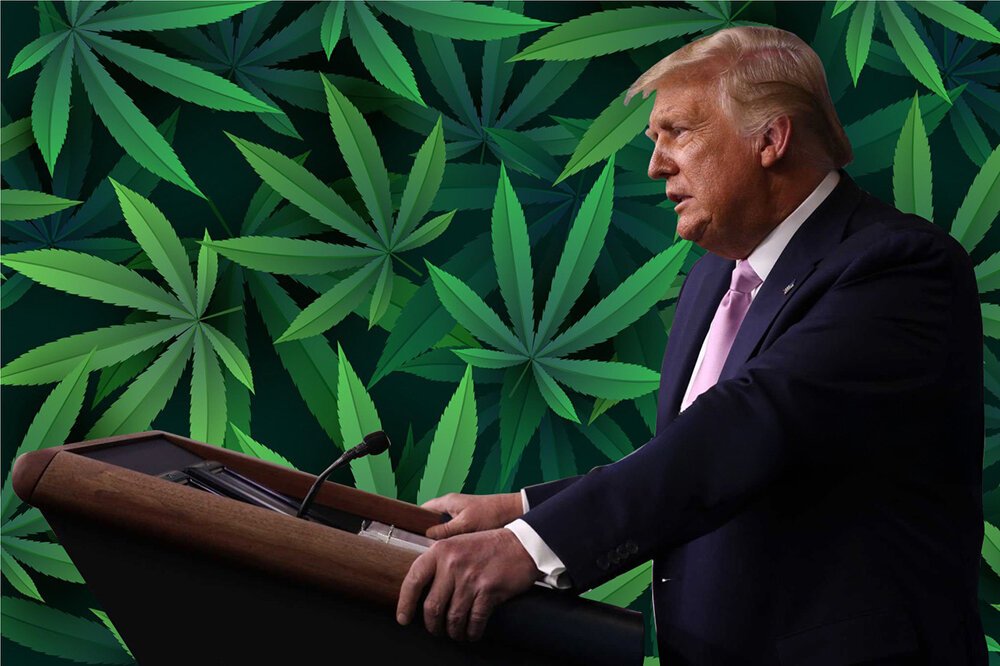As the first weeks of President Donald Trump’s second term wind down, the cannabis industry is holding its breath. Was Trump’s campaign-trail support for legalization just another empty promise, or is there hope for meaningful reform? The answer, as always with Trump, is shrouded in uncertainty — and a healthy dose of skepticism.
Trump’s reelection comes at a pivotal moment for recreational cannabis. The once-breakneck speed of legalization has slowed to a crawl. Florida, the next big domino to fall in the transition from medical to recreational cannabis, remains stubbornly resistant. Last year’s Amendment 3, which aimed to legalize recreational cannabis in the Sunshine State, narrowly failed at the ballot box, despite Trump’s endorsement. The proposal needed 60% of the vote and fell just short, leaving organizers scrambling to try again in 2026.
For many in the cannabis industry, Trump’s endorsement of Amendment 3 was a rare glimmer of hope. But let’s not forget: This is a man who, during his first term, did little to advance the cause of legalization. His first-term pick for attorney general, Jeff Sessions, was a notorious cannabis critic who rolled back Obama-era protections for the industry. While Trump has since softened his stance, many insiders wonder if his newfound support is little more than election-year pandering.
Federal reform:
The make-or-break moment
If the cannabis industry is going to survive its growing pains, federal reform is non-negotiable. Rescheduling cannabis at the federal level is the next big hurdle, and it’s one that could unlock a flood of opportunities.
Cannabis operators are especially hamstrung by Section 280E of the Internal Revenue Code, which prevents them from deducting otherwise standard business expenses from gross income. This archaic rule is crushing small businesses, especially in states like Michigan, where price compression is already squeezing margins. Retailers in Lansing and beyond are frustrated, and many are wondering how much longer they can hold on.
But here’s the kicker: Meaningful reform will require bipartisan cooperation. And let’s be real — when was the last time Congress played nice? The Trump administration would need to work with Democrats to push through a rescheduling, and in today’s hyper-partisan climate, that’s about as likely as Sessions lighting up a joint.
The DEA wild card
Adding to the uncertainty is Trump’s pick to lead the DEA: Derek Maltz, a career special agent with a “no-nonsense” approach and a long history of anti-cannabis rhetoric. Maltz has publicly criticized the Biden administration’s efforts to reschedule cannabis, citing “public health concerns” and even blaming cannabis for school shootings. While it’s tempting to dismiss his comments as partisan fearmongering, his track record speaks for itself.
The real question is whether Maltz will toe the line if Trump decides to push for legalization. Will he bow to pressure from the Oval Office, or will he dig in his heels and become a roadblock to progress? Only time will tell, but his appointment doesn’t exactly inspire confidence.
To read more, click on Lansing City Pulse

